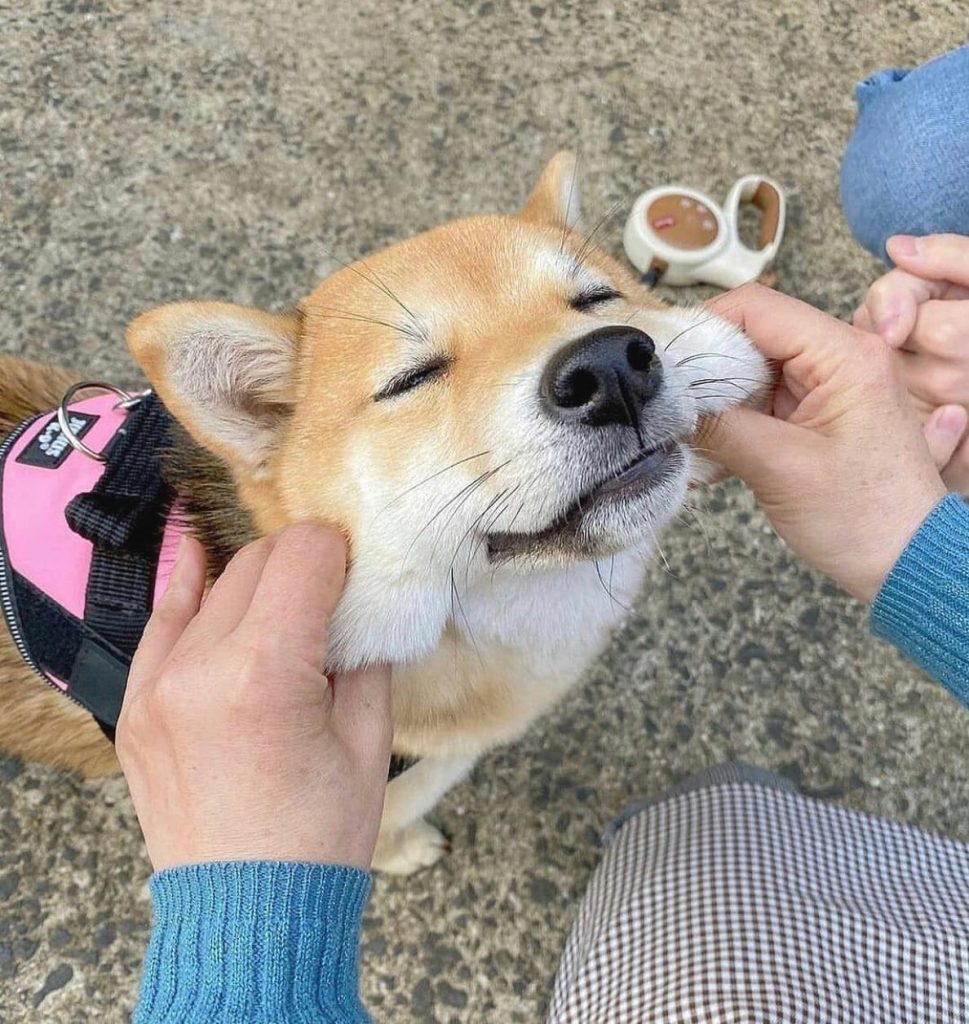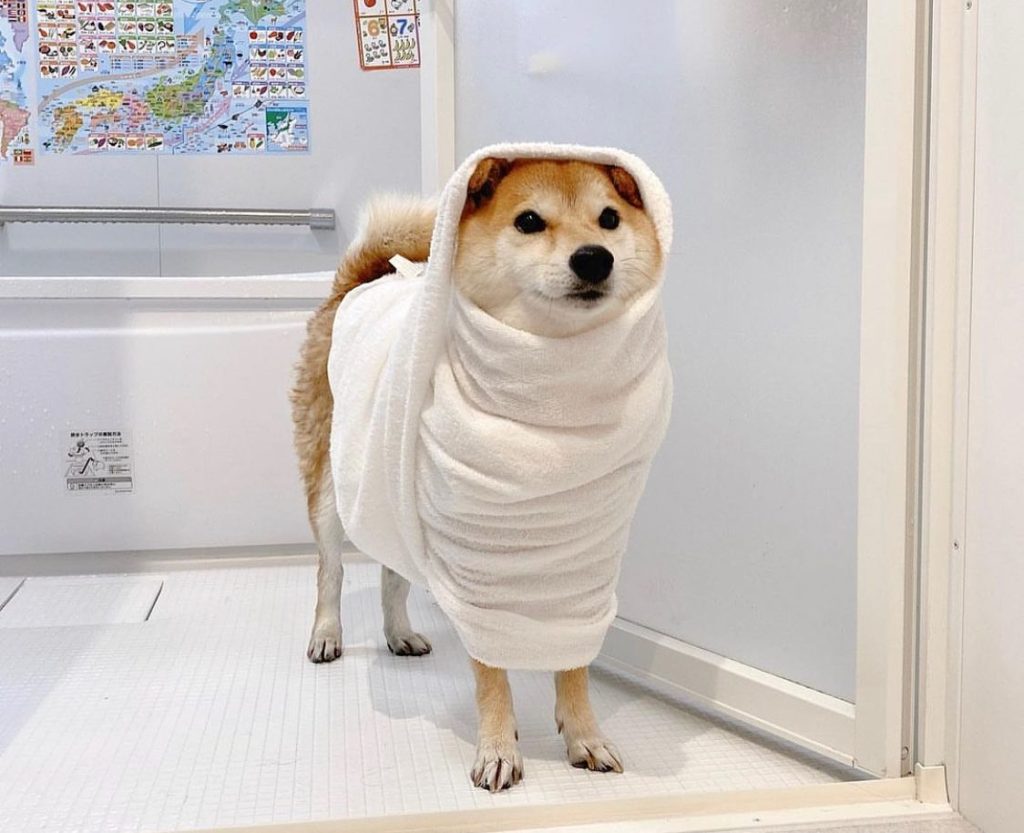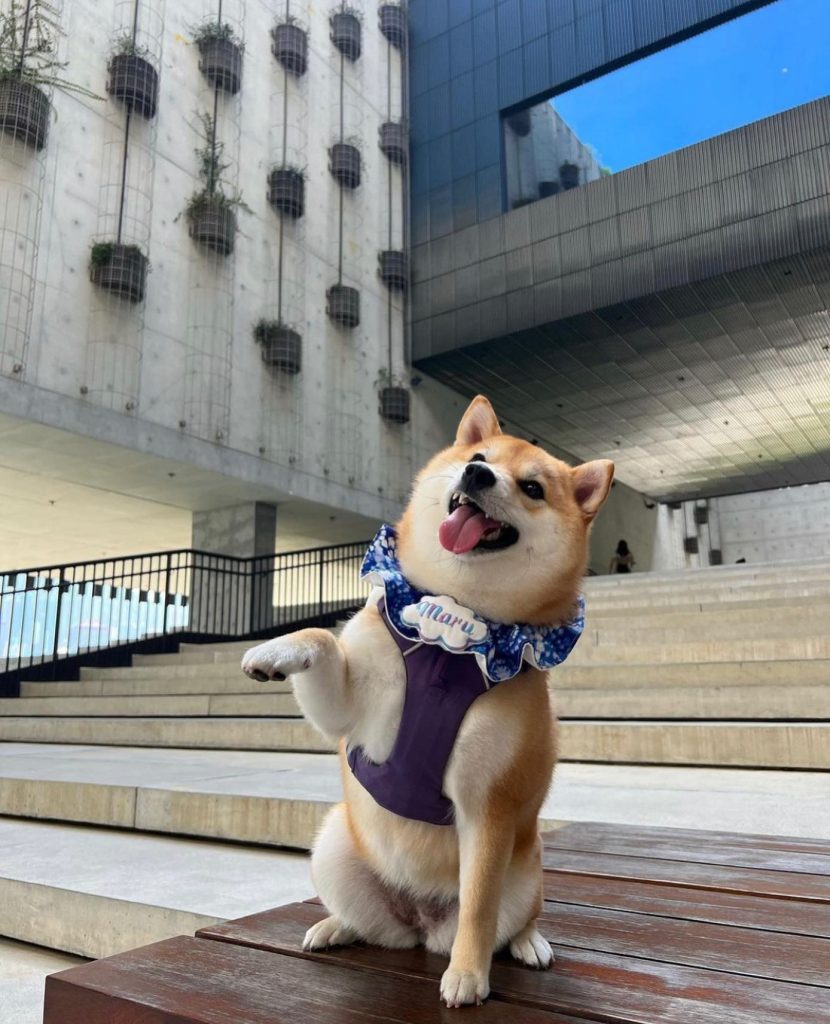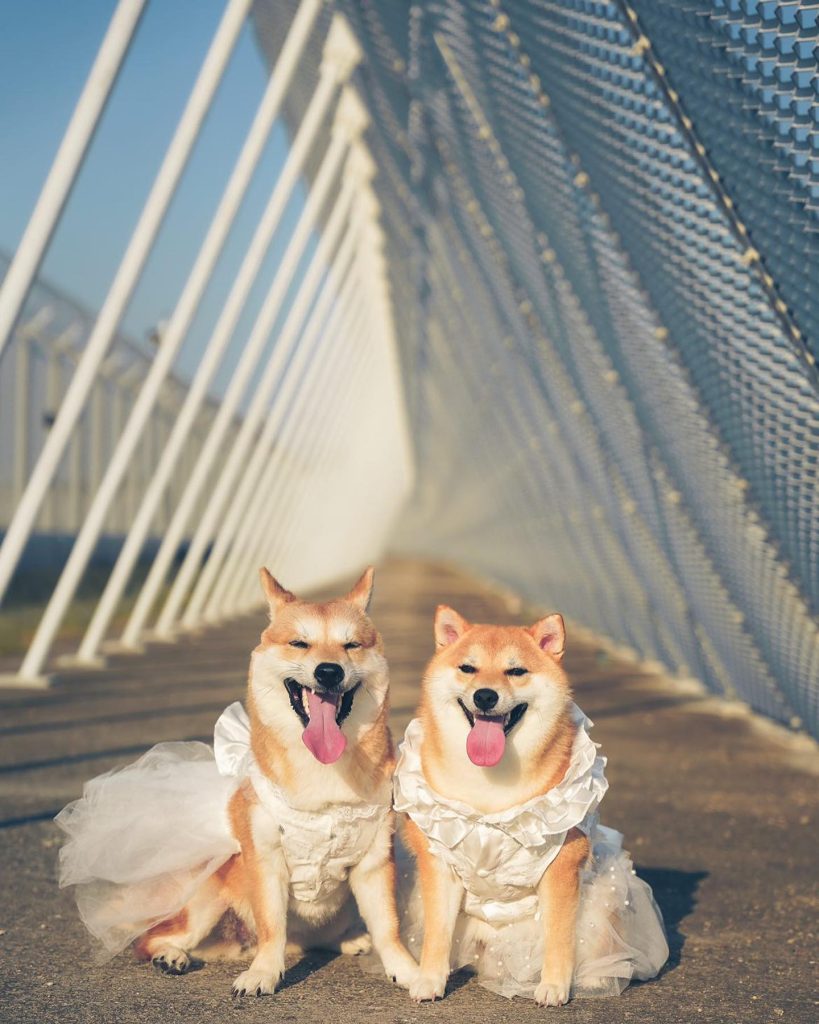
Introduction to Shiba Inus Breed
Shiba Inus, a breed with a majestic aura and a fox-like appearance, have captured the hearts of dog enthusiasts worldwide. Known for their agile movements and spirited personality, these dogs embody a unique blend of charm and dignity. Originating from Japan, Shiba Inus have a storied history and have become a cultural icon, representing the country’s rich heritage in canine form. They are not just pets; they are a living testament to the natural beauty and mystical allure of the animal kingdom.
Breed Overview and Popularity
Shiba Inus are among the most popular dog breeds, not just in their native Japan but across the globe. Their compact size, coupled with their bold and confident demeanor, makes them an ideal companion for a variety of lifestyles. Shiba Inus are known for their vibrant personalities, which are often described as a mix of a cat’s independence and a dog’s loyalty. This breed’s popularity has been further bolstered by their internet fame, with many Shiba Inus becoming the faces of popular memes and social media campaigns.
The History and Origin of Shiba Inus
The Shiba Inu breed dates back to ancient Japan, where they were originally bred for hunting in the mountainous regions of the country. The word “Shiba” in Japanese refers to something “small,” a fitting description for this compact breed, while “Inu” means dog. Historically, Shiba Inus were tasked with flushing out small game and birds for hunters, a job for which their keen senses and agile bodies were perfectly suited. Over the centuries, the breed has evolved, but they have retained many of the traits that made them excellent hunting companions, including their alertness, agility, and intelligence.
Understanding Shiba Inus

Delving deeper into the essence of Shiba Inus unveils a breed that is as enigmatic as it is endearing. Understanding these dogs goes beyond appreciating their physical beauty; it involves recognizing their distinct characteristics, temperamental nuances, and the unique ways they interact with their human families and other pets.
Characteristics of the Shiba Inu
- Size and Stature: Shiba Inus are a small to medium-sized breed, with an average Shiba Inu height ranging from 13.5 to 16.5 inches at the shoulder. This size makes them agile and adaptable to various living environments.
- Coat and Color: They boast a double coat that can come in several colors, including red, sesame, black and tan, and cream. The lushness of their fur adds to their striking appearance.
- Facial Features: A Shiba Inu puppy captivates with its alert, fox-like expression, enhanced by a set of deep-set, almond-shaped eyes and a confidently curled tail.
- Physical Agility: Originally bred for hunting, Shiba Inus possess remarkable agility and endurance. Their nimble movements are a sight to behold, whether they’re navigating city streets or exploring rugged terrains.
Temperament and Personality Traits
Shiba Inus are known for their spirited and independent nature, often compared to that of a cat. While they can form deep bonds with their owners, they also cherish their autonomy. This breed exhibits a range of personality traits that make them fascinating companions:
- Intelligence and Cunning: Shiba Inus are exceptionally smart, capable of learning quickly but also prone to using their intelligence in mischievous ways.
- Loyalty and Affection: Once a Shiba Inu forms a bond with its owner, it displays profound loyalty and affection, often becoming a protective and devoted family member.
- Alertness and Vigilance: Their history as hunting dogs has endowed Shiba Inus with an innate alertness, making them excellent watchdogs.
- Potential for Aggressiveness: While not inherently Shiba Inu aggressive, this breed can exhibit aggressive tendencies if not properly trained or socialized from a young age, highlighting the importance of early and consistent training.
Shiba Inu’s Interaction with Family and Other Pets
Shiba Inus have a complex relationship with families and other pets, shaped by their temperament and socialization:
- Family Dynamics: In a family setting, Shiba Inus can be affectionate and playful, though they often exhibit a preference for a quiet and respectful approach from children.
- Interactions with Other Dogs: Their independent nature means Shiba Inus can coexist peacefully with other dogs, especially if raised together, but they may assert dominance with unfamiliar dogs.
- Compatibility with Cats and Other Pets: Surprisingly, due to their hunting heritage, Shiba Inus can adapt to living with cats and other pets, particularly if introduced properly and at a young age. Their prey drive is less pronounced compared to other hunting breeds, allowing for harmonious multi-pet households under the right circumstances.
The Pros and Cons of Owning a Shiba Inu

Deciding to welcome a Shiba Inu into your life is a significant decision that comes with its own set of rewards and challenges. Like any breed, Shiba Inus have distinct traits that can be advantageous or difficult, depending on an owner’s lifestyle, patience, and experience with dogs. Understanding these pros and cons is crucial for anyone considering adding a Shiba Inu to their family.
Advantages of Shiba Inus
Natural Beauty and Loyalty
Shiba Inus are undeniably beautiful dogs, with their fox-like appearance, striking coat colors, and elegant movements capturing the admiration of onlookers. Beyond their physical beauty, they possess a deep sense of loyalty to their family members, often forming strong, lasting bonds with their primary caretakers.
Health and Intelligence
Shiba Inus are generally a healthy breed, known for their longevity and robustness, which can lead to fewer vet visits and a longer companionship. Their intelligence is another significant advantage; Shiba Inus are quick learners and can master commands and Shiba Inu breed training with the right approach and consistency.
Cleanliness and Attention-Getting Attributes
Shiba Inus are known for their cat-like grooming habits, making them one of the cleaner dog breeds. This cleanliness extends to their living environment, as they are less likely to bring dirt and debris into the home. Additionally, their unique personality and appearance make them natural attention-getters, often becoming the center of conversations and admiration in public and social settings.
Challenges with Shiba Inus
Aloofness and Stubbornness
One of the challenges of Shiba Inu ownership is their tendency towards aloofness and stubbornness, which can make Shiba Inu breed training tips and guidance essential for new owners. This breed values its independence, which can sometimes manifest as a reluctance to follow commands or engage in training sessions without the proper motivation.
Dramatic Behaviors and Escape Risks
Shiba Inus are known for their “Shiba scream,” a loud and dramatic vocalization they can emit when unhappy or stressed. This, coupled with their high intelligence and agility, can lead to escape attempts if they are bored or confined without adequate stimulation. Ensuring a secure and engaging environment is crucial for keeping a Shiba Inu safe and content.
Managing Their Shedding
Despite their cleanliness, Shiba Inus are heavy shedders, especially during the seasonal shedding periods. Managing their shedding requires regular grooming and can be a significant challenge for owners unprepared for the amount of fur a Shiba Inu can produce. Regular brushing and a good vacuum cleaner become essential tools for a Shiba Inu household.
For prospective and current owners, developing an effective Shiba Inu breed training guide tailored to their individual dog’s personality and needs is crucial for overcoming these challenges and enjoying the many benefits this unique breed has to offer.
Shiba Inu Care Essentials

Caring for a Shiba Inu involves a comprehensive understanding of their specific needs and preferences. From their physical activity requirements to their grooming regimen, dietary needs, and training approaches, ensuring the well-being of a Shiba Inu requires dedication and knowledge. Each aspect of their care is crucial for maintaining their health, happiness, and overall quality of life.
Exercise Requirements
Shiba Inus are energetic and agile dogs that require regular exercise to maintain their physical health and mental well-being. Here are some key points to consider:
- Daily Walks: Aim for at least one to two walks per day, totaling 30 minutes to an hour. This not only helps in maintaining their ideal Shiba Inu weight but also provides mental stimulation.
- Playtime: Incorporate play sessions that allow them to run, chase, and explore. Interactive toys and games can engage their minds and satisfy their natural instincts.
- Training Activities: Use training sessions as part of their exercise regimen. This not only keeps them physically active but also sharpens their mental faculties.
- Safe Off-Leash Areas: If possible, provide opportunities for off-leash play in secure, fenced areas where they can safely explore and exercise.
Grooming Needs
Shiba Inus require regular grooming to maintain their coat’s health and appearance:
- Brushing: Due to their double coat, regular brushing (at least twice a week) is necessary to remove loose fur and prevent matting, especially during shedding seasons.
- Bathing: Shiba Inus are relatively clean dogs, so they don’t need frequent baths. Every few months or when noticeably dirty is often sufficient, unless they have rolled in something undesirable.
- Nail Trimming: Keep their nails trimmed to prevent discomfort and potential injury. This might need to be done monthly, depending on growth and wear.
- Ear and Teeth Cleaning: Regular ear checks and cleanings, along with dental care, are essential for preventing infections and maintaining overall health.
Nutritional Recommendations
A balanced diet is vital for a Shiba Inu’s health and longevity. Here are some guidelines:
- High-Quality Dog Food: Choose a high-quality dog food appropriate for their age, size, and activity level. Consult with your vet for personalized advice.
- Portion Control: Monitor food intake to prevent obesity, which can affect their Shiba Inu life expectancy and overall health.
- Hydration: Ensure they have constant access to fresh water, especially after exercise.
- Treats: Use treats sparingly and opt for healthy options. Treats are excellent for training but should not exceed 10% of their total daily calorie intake.
Effective Training Strategies
Training a Shiba Inu can be challenging but rewarding. Here are some effective strategies:
- Positive Reinforcement: Use treats, praise, and play as rewards for good behavior. Positive reinforcement encourages them to repeat desired behaviors.
- Consistency: Be consistent with commands and rules. Consistency helps your Shiba Inu understand expectations and builds trust.
- Short and Engaging Sessions: Keep training sessions short and fun to maintain their interest. Shiba Inus can become bored with repetitive or lengthy sessions.
- Socialization: Early socialization with people and other animals is crucial for developing a well-rounded and sociable dog. It helps prevent fearfulness and aggression.
Caring for a Shiba Inu requires understanding their unique needs and tailoring their care accordingly. By attending to their exercise, grooming, nutritional needs, and training with patience and consistency, you can ensure a happy, healthy life for your Shiba Inu.
Health and Wellness

Maintaining the health and wellness of a Shiba Inu involves being vigilant about their physical condition and aware of common health issues that may affect this breed. While Shiba Inus are known for their robust health and long lifespan, they, like all breeds, are predisposed to certain medical conditions. Recognizing and understanding these issues can lead to early intervention and more effective management.
Common Health Issues in Shiba Inus
Shiba Inus are generally healthy, but they can be prone to some genetic and lifestyle-related health issues. Awareness and preventive care are key to ensuring a long, healthy life for your Shiba Inu.
Ear Problems and Seizures
Shiba Inus can experience ear infections due to their erect ear structure, which can trap moisture and debris. Regular cleaning and monitoring for signs of distress or discomfort can prevent severe infections. Seizures, another health concern for Shiba Inus, can be idiopathic or symptomatic of underlying conditions like epilepsy or metabolic disorders. Observing and documenting any seizure activity is crucial for veterinary assessment and management.
Spinal Issues and Tumors
This breed may also be susceptible to spinal issues, including intervertebral disc disease (IVDD), which can cause pain, nerve damage, and even paralysis. Early detection through vigilant observation of mobility and behavior changes can lead to timely intervention. Tumors, both benign and malignant, can occur in Shiba Inus. Regular health check-ups and prompt investigation of unexplained lumps, weight loss, or lethargy are essential for early detection and treatment.
Cruciate Ligament Disease
Cruciate ligament disease, which affects the knee joints, is another condition that can impact Shiba Inus, particularly those that are overweight or overly active without proper conditioning. Symptoms include lameness and reluctance to use one leg. Weight management and controlled exercise can help prevent this painful condition.
By staying informed and proactive about these common health issues, Shiba Inu owners can help their pets lead healthier and more comfortable lives. Regular veterinary check-ups, a balanced diet, and an appropriate exercise regimen are foundational to the wellness of Shiba Inus.
Preparing for a Shiba Inu
Welcoming a Shiba Inu into your home is a joyful and significant commitment that demands careful preparation and consideration. Understanding what to expect and where to find a Shiba Inu can make the transition smoother for both you and your new furry friend.
Considerations Before Buying or Rehoming
Before deciding to buy or rehome a Shiba Inu, it’s essential to evaluate your lifestyle and environment. Consider the following:
- Time and Commitment: Shiba Inus require time, attention, and consistent training, especially in their formative years.
- Exercise Needs: Be prepared to meet their daily exercise needs to maintain their physical health and mental well-being.
- Space Requirements: While adaptable to apartment living, they thrive in environments where they have enough space to move around freely.
- Family Dynamics: Assess how a Shiba Inu might fit into your family. Their temperament and energy level should match your household’s lifestyle.
Where to Adopt or Purchase a Shiba Inu
When it comes to finding a Shiba Inu, you have a few options:
- Reputable Breeders: Ensure they follow ethical breeding practices and provide health clearances for the puppies.
- Rescue Organizations and Shelters: Adopting a Shiba Inu can be a rewarding option, giving a second chance to a dog in need.
- Breed-Specific Rescues: These organizations often have Shiba Inus looking for new homes and can provide breed-specific advice.
Choosing to bring a Shiba Inu into your life is a decision that should be made with care and consideration, ensuring a happy and harmonious relationship for years to come.
FAQs About Shiba Inus
Are Shiba Inus Suitable for Families?
Yes, Shiba Inus can be great family pets if they are socialized early and the family is prepared for their independent nature. They do best in homes where they can receive consistent training and attention.
How Big Do Shiba Inus Get?
Shiba Inus are a small to medium breed, typically weighing around 17 to 23 pounds for males and 15 to 20 pounds for females, with a height of about 13.5 to 16.5 inches at the shoulder.
Character and Behavior: What to Expect
Expect a confident, strong-willed dog with a mix of loyalty and independence. Shiba Inus are alert, energetic, and may be reserved with strangers but affectionate with family.
Compatibility with Cats?
Shiba Inus can coexist with cats, especially if they are raised together from a young age. However, due to their hunting instincts, careful introduction and supervision are essential.
Closing Thoughts: Is a Shiba Inu Right for You?
Deciding to welcome a Shiba Inu into your life involves careful consideration of their unique needs and characteristics. If you appreciate their independence, can commit to their care, and are prepared for both the joys and challenges they bring, a Shiba Inu can be a delightful and loyal companion. Ensure your lifestyle aligns with their requirements to ensure a harmonious and fulfilling relationship.
